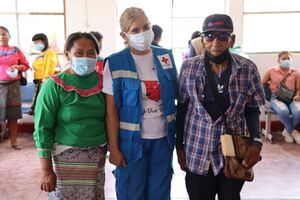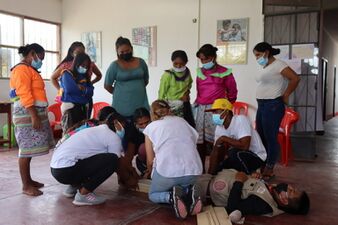First Aid Training for Shipibo Healers
| Organization | Organizacion Intercultural Oni Xobo |
|---|---|
| Region | Peru |
| Website | Website |
| N/A | |
| ProjectLeader | Tanya Kammonen |
| Linked Problems & Solutions
|
|---|
Shipibo traditional healers have made a huge impact on the world, sharing their ancestral knowledge and providing healing and spiritual guidance for thousands of foreigners. What we don't see is the essential role that these healers play in their home communities, acting as doctors for many families. The healers have themselves requested training in modern medicine techniques, starting with basic First Aid and basic Injection training.
Challenge
The Shipibo people live in 176 distinct communities/villages up and down the Ucayali River, and are made up of up to 45000 people. Of those 176 communities, only 40% have medical posts, and even those are often under-equipped. Traditional Shipibo healers use a powerful ancestral practice, combining plant and spiritual knowledge, to heal patients in those same communities, and rarely have integrated training to be able to attend to emergencies and provide culturally appropriate care for patients.
Long-Term Impact
This is the first step in a long-term vision of a fully integrated health care system within the Shipibo nation. It is important that the traditional doctors themselves are trained in Western Medicine techniques to be able to better understand, design, and implement integrated systems of health care that truly honor traditional roots and don't get lost in or absorbed by the dominant Western system. Their medicine has survived for thousands of years and it is important that it continue.
References
Project Gallery






